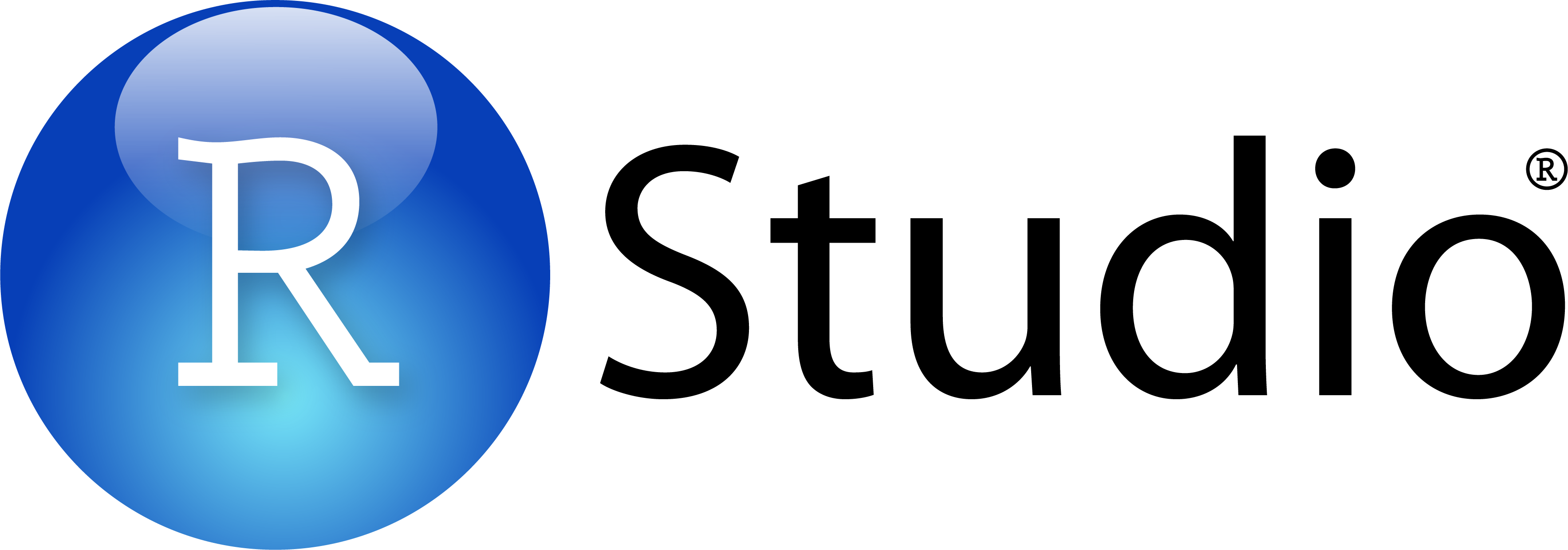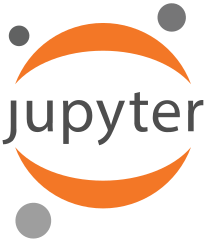Integrated Development Environments
Integrated Development Environments (IDE) are graphic user interfaces (GUI) for working with code and data.
Modern IDEs are designed to interact with cloud and cloud native data types with few additional extensions.
The most popular software development IDE for working with code is Microsoft's Visual Studio Code ( VS Code). VS Code has extensions for many geospatial applications and can be used to run large compute clusters on cloud.
RStudio and Project Jupyter are two other widely used IDE for working with code and data for research. RStudio focuses mostly on the R programming language, but has backward compatibility with Python.
Project Jupyter is focused on Python but has broad compatibility (kernels) across almost every programming language. Project Jupyter was adopted as the default IDE by several cloud platforms for on-demand virtual machines.
QGIS is the most popular IDE for open source GIS applications and has native features which allow users to load cloud optimized and analysis ready data.
ESRI has moved into cloud with its ArcGIS Online. Proprietary licenses are required to use ArcGIS Online, but many university and government agencies provide these to their GIS employees.
Cloud Workbenches¶
CyberGIS - HPC and Cloud service for geospatial data anlayses
CyVerse Discovery Environment - multi-platform service for full-stack cloud data management
DesignSafe CI - workbench for natural hazards research.
Google Earth Engine (GEE) - planetary-scale platform for Earth science data & analysis.
HydroShare - platform for hydrological science applications supported by CUAHSI
Microsoft Planetary Computer - Microsoft Azure compute environment (JupyterHub) with PANGEO software.
OSF.io - is a free, open source web application that connects and supports the research workflow, enabling scientists to increase the efficiency and effectiveness of their research.
RStudio Workbench - is an integrated development environment for R, a programming language for statistical computing and graphics. It is available in two formats: RStudio Desktop is a regular desktop application while RStudio Server runs on a remote server and allows accessing RStudio using a web browser.
On-Demand Cloud-based IDE¶
Free services running virtual machines on the cloud allow you to start and work in your browser. These include Google's Collaboratory (CoLab), the MyBinder Project, GitHub's CodeSpaces, and GitPod.
CoLab - Google's CoLaboratory starts a Jupyter Notebook, limited in size but can be increased with subscription.
CodeSpaces - GitHub's CodeSpaces starts a VS Code instance from a GitHub Repository which can be variabily sized (requires subscription)
GitPod - starts a VS Code instance that can be variably sized
MyBinder.org - starts a defined environment (RStudio, Jupyter, VS Code) from a GitHub Repository, limited in size.



